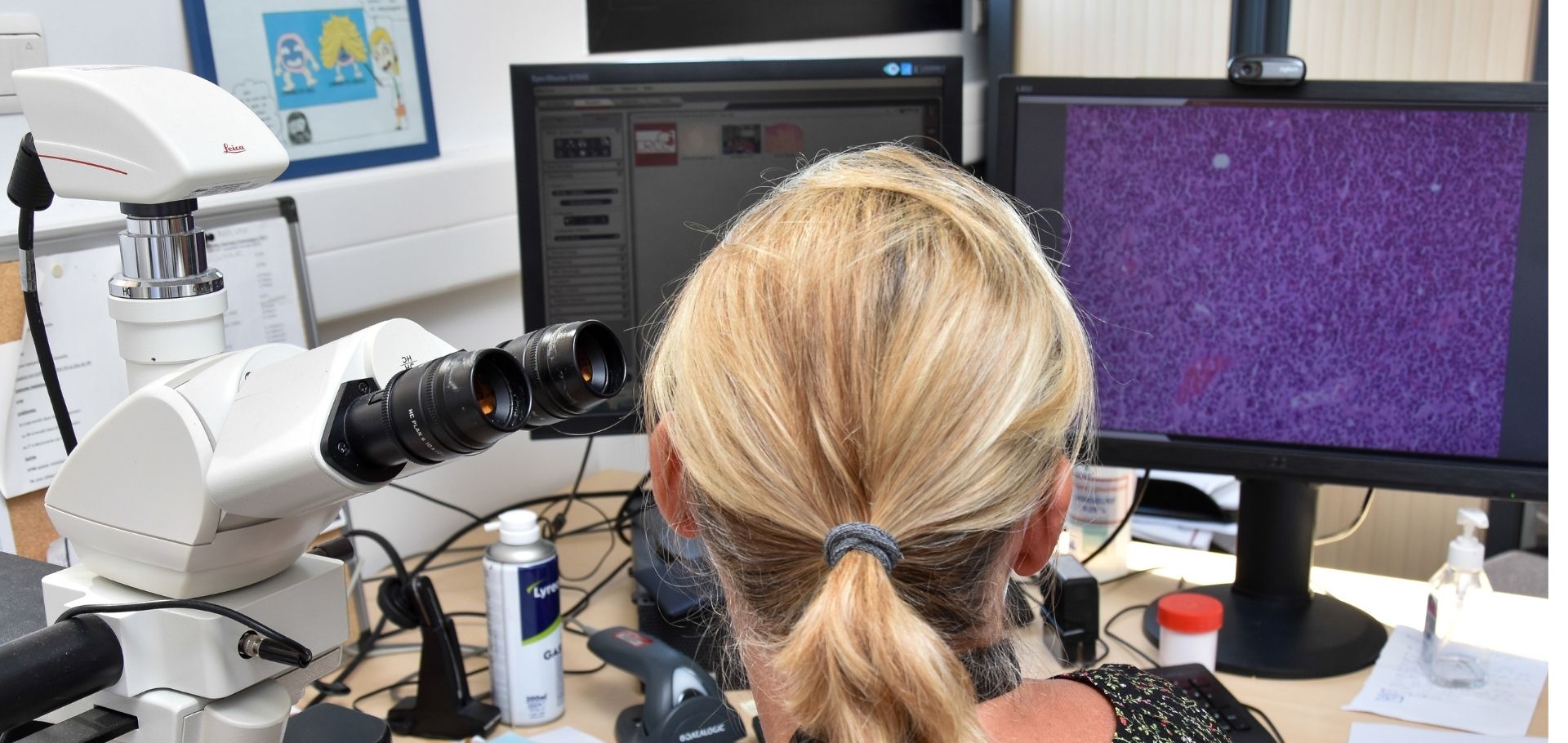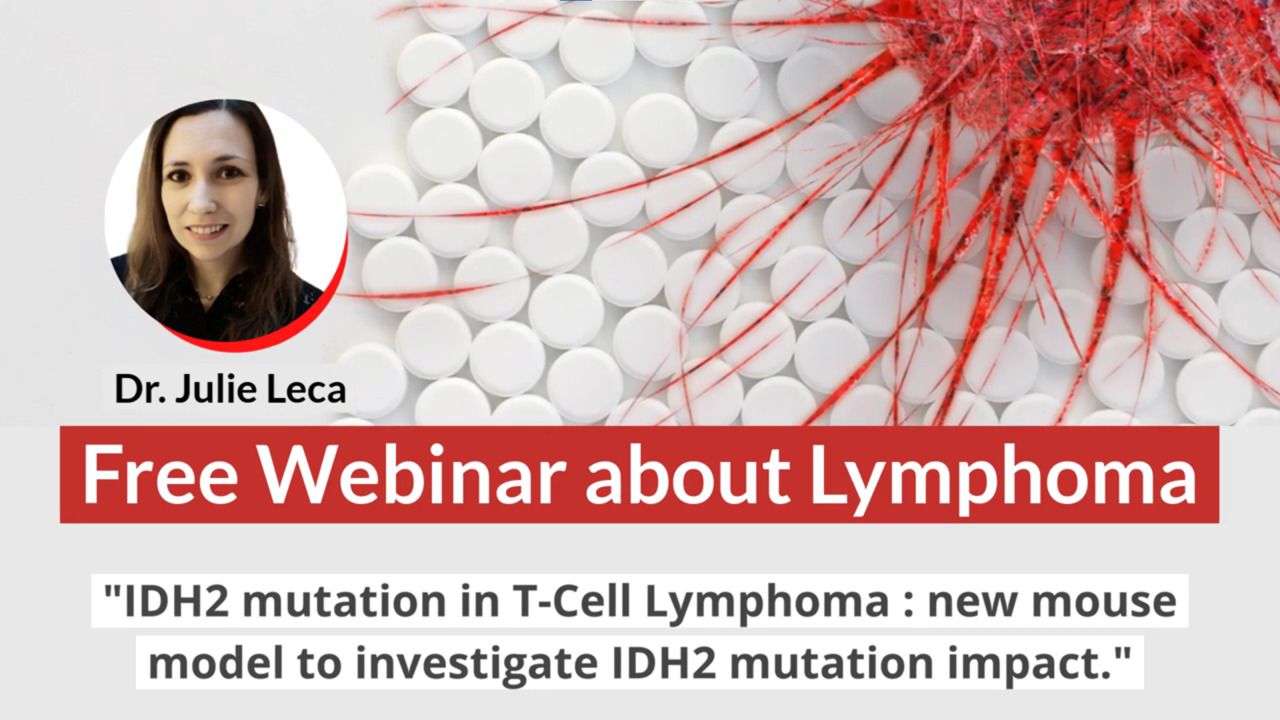Rise of the Artificial Intelligence program of the Carnot Institute CALYM
The classification of lymphomas is very complex. They are characterized by a strong heterogeneity, both in their presentation, their evolution, and in the populations affected. After a remarkable research breakthrough in the early 2000s with the arrival of the first immunotherapy, research today requires a change of scale enabled by the development of artificial intelligence.
The CALYM artificial intelligence program
The Artificial Intelligence program of the Carnot Institute CALYM has been developing since 2020 with the creation of the Lymphoma Data Hub, a global platform including a secure storage space for lymphoma data, and secure partnership work environments. Supported by a Microsoft Azure cloud solution, it offers an environment adapted to these new approaches and the needs associated with them, with secure and qualitative access to data from the consortium.
The implementation of this environment has been accompanied by strong governance of this action within the CALYM consortium and has since enabled the launch of the first academic and partnership research projects aimed at improving the understanding of lymphoma, its diagnosis and care.
Initiated in 2020, this program has developed in two phases :
1- The creation of the Lymphoma Data Hub, a thematic datalake enriched with partnership workspaces supported by the Azure cloud. It offers an environment adapted to these new approaches and the needs associated with them. Authorized by the CNIL (*), this structured environment offers secure and qualitative access to data from the consortium, whether it is data from clinical trials or healthcare. It should be noted that all these data are coded (pseudonymized) and do not allow direct identification of patients.
The purpose of the Lymphoma Data Hub is to facilitate the reuse of these data and to enable research projects to be carried out involving a multiple and complementary partnership environment, without the data itself being released.
2- The implementation of academic and partnership research projects aimed at improving the understanding of lymphoma, its diagnosis and care.
*: Created by the French Data Protection Act of 6 January 1978, the CNIL is an independent administrative authority responsible for ensuring the protection of personal data in computer files and processing operations, both public and private.
Projects around diagnostic assistance and early relapse prediction, the example of the ILIA project
The diagnosis stage is crucial to determine which lymphoma the patient has and to decide on the right treatment. For this, it is sometimes necessary to perform molecular biology and immunohistochemistry analyses which require time and specific equipment that not all anatomopathologists have in their laboratories. In addition, some of these physicians are not experts in lymphoma.
The ILIA project, led by Prof. Camille LAURENT and Prof. Christiane COPIE-BERGMAN, developed with the Owkin company and coordinated by the Carnot Institute CALYM, aims to address these challenges. ILIA aims at developing a diagnostic tool using AI approaches that, will be able to classify distinct subtypes of lymphoma and help pathologist to accurately diagnose lymphomas from a simple H&E stained pathology slide.
A second part of this project deals with the prediction of early relapse diffuse large cell B lymphoma patients. DLBCL is the most aggressive and the most frequent lymphoma subtype, for which efficient treatments exist. Indeed, around 60% of patients will undergo cure after R-CHOP treatment. Nevertheless, a fraction of patients relapse irremediably. And the earlier the relapse, the more the vital diagnosis is compromised.
The objective is therefore to use artificial intelligence to cross-reference pathological features and molecular biomarkers with clinical factors in order to determine a biomarker of early relapse.
This requires the cross-referencing of so much data that it is impossible for the human brain to do it alone, hence the interest of artificial intelligence, which is the only one able to analyze and process so much information.
Testimonials

The R&D team of the Carnot CALYM Institute, has actively worked on the implementation and deployment of this datalake. Emmanuel Gomez, Deputy Director of the Carnot CALYM Institute explains the choice of the Microsoft Azure solution.
“It is an extremely powerful solution, constantly evolving to be always at the highest level of the state of the art, which is essential for our consortium that wants to be at the forefront in its field.“

Bertrand Nadel, General Director of the Carnot CALYM Institute, is convinced that artificial intelligence opens up very good prospects and many projects are emerging on imaging, pathology, clinical trial design :
“I see a very bright future for artificial intelligence and all the consequences it will have for both research and health.“
Exciting prospects that raise real hopes for doctors and patients…

To launch a research project, contact Léa Marlot : Lymphoma-data-hub [a] calym.org
The Carnot CALYM Institute sincerely thanks the patients, former patients and their relatives who contribute to the progress of lymphoma research by allowing the reuse of their data. The research projects are listed on our website.
You consult them by going to the page I am a parent or a relative, heading I am participating or I have participated in a study.
Your rights concerning your personal data and how to assert them are also described there.



